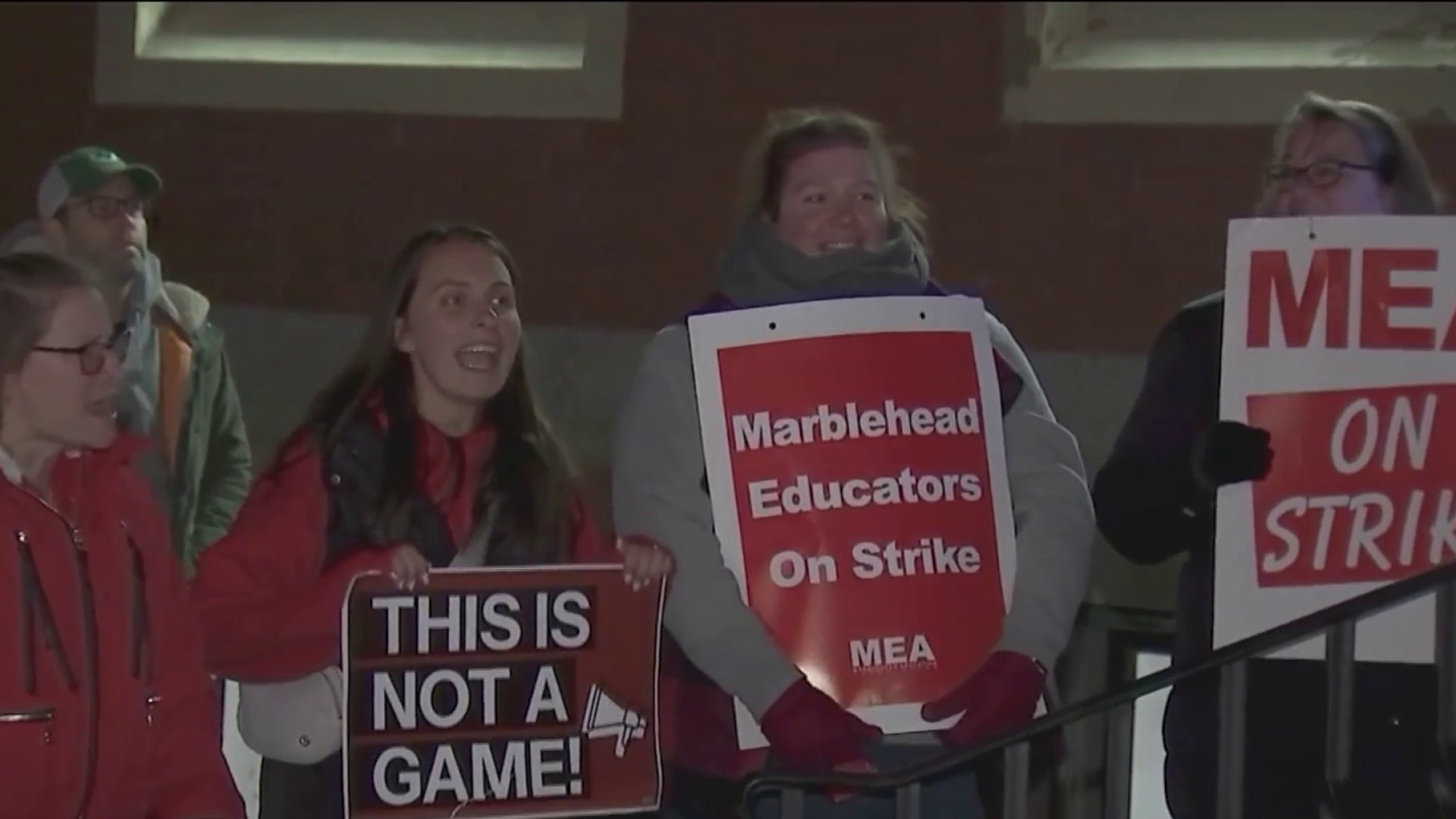With teachers and education leaders across the state grappling with how best to deal with cellphones in the classroom, officials at a boarding school in western Massachusetts have taken a novel approach.
Two years ago, school leaders at the Buxton School in Williamstown banned the use of smartphones on campus. The school also provided students and faculty with "dumb phones" — devices with limited functions, so calls from parents and all-school messages can still be received.
WATCH ANYTIME FOR FREE
Stream NBC10 Boston news for free, 24/7, wherever you are. |
Teachers at Buxton say disturbances inside and outside of classrooms led to the prohibition, including a conflict between two students that was captured on a smartphone camera and broadcast to the students' dorms.
"We were seeing as educators that a lot of the larger goals were trying to reach students with were not actually landing," said Buxton history teacher John Kalapos.
Get updates on what's happening in Boston to your inbox. Sign up for our News Headlines newsletter.
"There would be a break in class and students would immediately go down and they would look at their phone," he continued. "Teaching a class and having the class really engaged, and all of a sudden, you hear five dings because something goes off in a group chat and you've immediately lost your class."
Kalapos added, "It's these little moments that erode away at the social fabric of a school."
Buxton students did not take the news well, initially.
Local
In-depth news coverage of the Greater Boston Area.
"Everyone was like, 'Can they do this? Like, what about my right?' It was a negative reaction at first," said Buxton senior Iris Semon Pike. "Then we had conversations with faculty about why this was happening and what the plan was going forward. Everyone came around and realized that it was a good thing."
"During meals, I think [the change] is most visible," said Owen Hindes, a senior at Buxton. "Everyone used to just come down with their phones, eat lunch and just be, like, scrolling through something during meals. Now, you find yourself talking or sitting at tables that you would never have before. A lot of people branched out and met a lot of the new people, instead of isolating themselves or sticking to their original friends."
Smartphones may be banned, but there is not a total tech blackout at Buxton.
"We still have Wi-Fi. We still have access to the internet, and we are still very much connected to the outside world," Semon Pike told NBC10 Boston.
The movement to remove smartphones from classrooms is gaining steam around the country.
A Department of Education study done in 2020 found more than 75% of schools in the U.S. had moved to restrict the non-academic use of the devices. Last year, Florida required its public schools to ban cellphone use during instructional time and block students' access to social media on district Wi-Fi.
Some education officials question the efficacy of such bans. One Massachusetts high school principal who spoke with NBC10 Boston questioned whether cellphone restrictions are practical or even helpful to teens. Some educators in Connecticut, in response to a recommendation from Gov. Ned Lamont to limit cellphone usage in that state's schools said there are benefits of having the devices in classrooms.
A Buxton biology teacher hinted at a health benefit for students from the ban.
"Smartphones, like other things, create an addiction," said Linda Burlak, who also serves as academic dean. "You get those little buzzes happening in your pocket, the notifications and the sort of dopamine hits that you get from scrolling and seeing references."
"I mean, if you are addicted to cigarettes, and you were told, 'You can't smoke in class, but in those five minutes in between class, you can go smoke a cigarette,' that is not going to break the addiction," she continued. "And if you say, 'You can't look at your smartphone except for the five minutes in between class,' your brain is still looking for those dopamine hits."
On its website, Buxton says it has been training teachers in the theory and practice of progressive education for nearly a century. Kalapos, who, in addition to serving as history teacher, is also the school's co-director, believes Buxton adheres to its educational philosophy through this ban.
"It is pretty ironic that in order to take a progressive step forward, we need to take a technological step backwards," he said. "Saying that we are not actually going to invite all of this into our community all the time is a really progressive move."



